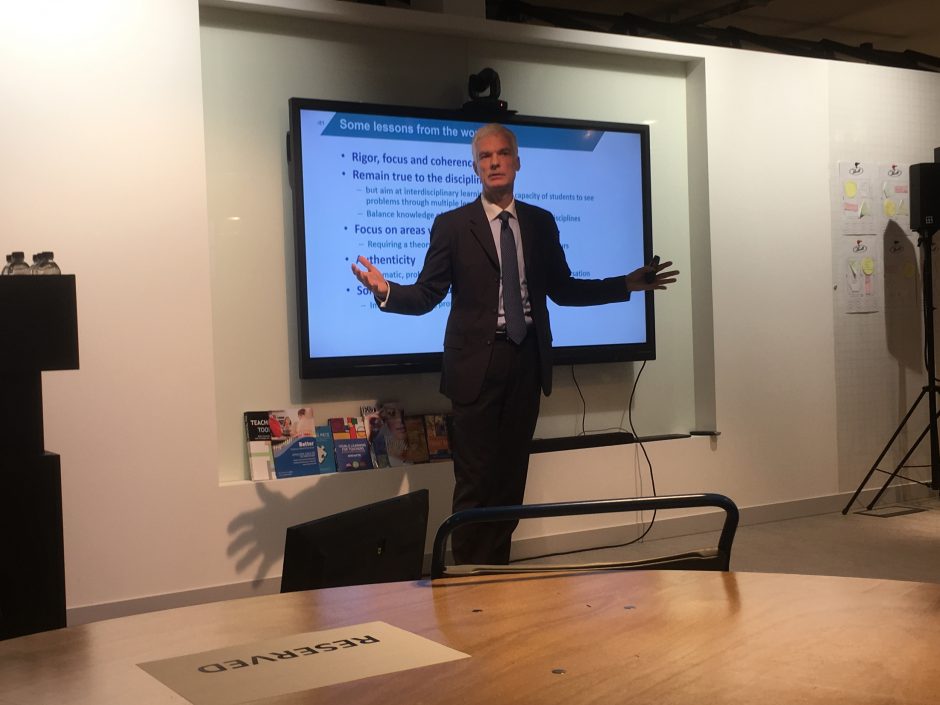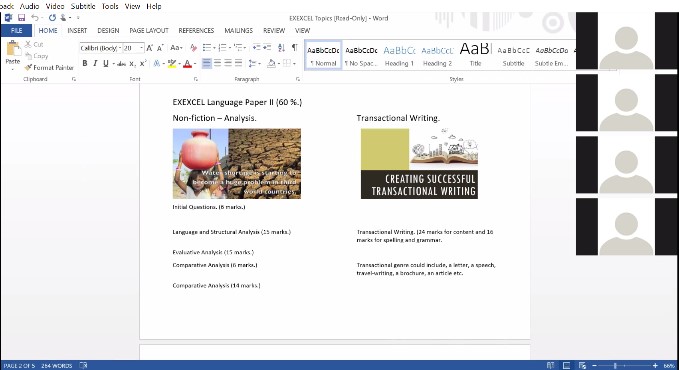Oct 21st – Schools Week published Karen Wespieser’s “Why is the good cpd always on the weekend?” An article that Karen noted had reignited the debate on weekend CPD. With an open door, here is my two cents. I think Karen may have under egged the pudding and I wrote to her to say so, more of that at the close.
Firstly, bringing a “buzz” to school CPD would be wonderful, however schools CPD has fundamentally the same and different drivers. The message is confused because the term CPD is unhelpful and misrepresentative. CPD too often gets bumped and bruised because it represents both training and personal professional development (PPD). Statutory responsibilities, annual or cyclical duties or one-off targeted training session (Safeguarding, Health and Safety, Performance Review and supporting a new student with a visual impairment) or training is lumped together with subject enhancement, generic skills-based teacher development, standardisation, moderation, teacher led inquiry and so forth. Much of the CPD criticism, complaints of lecture style / PPT overload, is primarily directed at info transmission training. With that division, let’s focus on PPD.
Karen points out that these conferences, organised by and for teachers provides a “unique access to a choice of CPD opportunities beyond the regular school-level offer.” That is partly accurate. What they offer is more teacher / leader sessions, more PPD and notably an absence of training. Attendees to #srocks18 can choose from 30 sessions focused on the four teaching strands that encourage cross-sector collaboration (be that Primary, Secondary or SEND). It is not too dissimilar to the Eastleight consortium INSET training I attended when teaching at Hamble Community Sports College back in 2013.
My second point is that this style or pick and mix, self-selection PPD, is on offer, and many schools do take up the opportunity. In fact, when The Education Festival moved from Friday / Saturday, to Thursday / Friday, conference organisers, Summer House Media, inform me that “the numbers more than doubled.”
Now, given Karen’s professional background with NFER, you would expect there to be a investigative, evidence based focus and there was.
Last year in NFER’s analysis of teacher retention, NFER looked to see if providing appropriately for a teacher’s professional development was significantly associated with a greater desire to remain in teaching or to leave the profession. We were surprised to find no significant association at all. That is somewhat in contrast to the presentations of Andreas Schleicher (Director for the Directorate of Education and Skills) over at PISA.
A learning profession that places little or no emphasis on it’s own core – learning? Are teachers not turning up to #TLT17 in their hundreds? Has ResearchED not turned itself into a global business? Are that not literally tens of TeachMeet events hosted up and down the country and listed on their wikipage?
Are we back with the troubled definition? Professional Development is not significantly associated with retention because what Karen is referring to is blighted by training?
She is right about one thing, there is a buzz, the same buzz highlighted in the TES article earlier in the year (highlighting the same weekend concerns mind you).
The buzz at the events I’ve attended is invigorating. It’s an effective tonic for any jaded teacher lost in the edu-noise and in need of reconnecting with their craft and professional purpose.
Rob Webster is absolutely right when he add that “whilst this is a fix that will benefit some teachers, it will not be reaching a majority who cannot or will not give up their own free time (and often money) to travel to weekend CPD events.” That is the over whelming vast majority of teachers.
I am not aligned with Martin Robinson’s contribution, “Saturday conferences are for education ‘hobbyists’ – more like train spotting than CPD,” it is far from my hobby. However, I didn’t hear back from him.
Karen positions that points 4 and 5 from the Standard for Teachers’ Professional Development
4. Professional development programmes should be sustained over time.
5. Professional development must be prioritised by school leadership.
are not covered by “teachers for teachers event.” Maybe not fully. #TLT is annual, recently celebrating their 5th birthday. Is annual a regular rhythm? Do TLT parties, vlogs and blogs that extend the experience mean it is sustained? Certainly @ViviennePorritt is keen to ensure the delegates are not merely experiencing a “fun day out” when she urged the audience at Pedagoo to commitment to change, to being 10% braver. And Chris Moyse promoted small steps, action and consolidation at #TLT17. If PPD is in itself a sufficiently narrow goal and delegates can often select from the myriad of teacher led sessions (not forgetting that there is PPD and reflection is creating a session in the first place by the teacher/session leader) that #TLT17 measures up.
To conclude, only point 5 is missing. It could easily be achieved if schools recognised and offset commitment to PPD at the weekend against directed time, or accommodated the costs incurred.
What these weekend events and open corporate events such The Education Festival offer is self-direction, or PPD. Could schools collaborate to offer exciting, cross phase, cross sector PPD? Of course they should. Are schools collaborating? Yes. Enough? With enough focus on pedagogy, subject specialist knowledge, cross phase, evidence-based? Not yet.
On a minor note, Karen suggests that weekend conference have grown in popularity recently, “driven primarily by grassroots, teacher-led groups such as ResearchED and WomenED.” Arguably groups like Pedagoo and TeachMeets (The Teachmeet PBWiki page goes right back to 2010, Pedagoo 2012) are more deserving of the recognition for galvanising “teachers for teachers” CPD.
It is worth that after drafting this post, I shared it with Karen via email. I asked KAren for, and recieved, her feedback. Furthermore our conversation continued and she has helped promote the definition of PPD.
[h5p id="2"]
Back in July the TES published an article “Do-it-yourself weekend CPD is on the rise – but why should professional development happen in teachers’ leisure time?” Of the two, I felt more aligned to Rob’s description than Karen’s.


